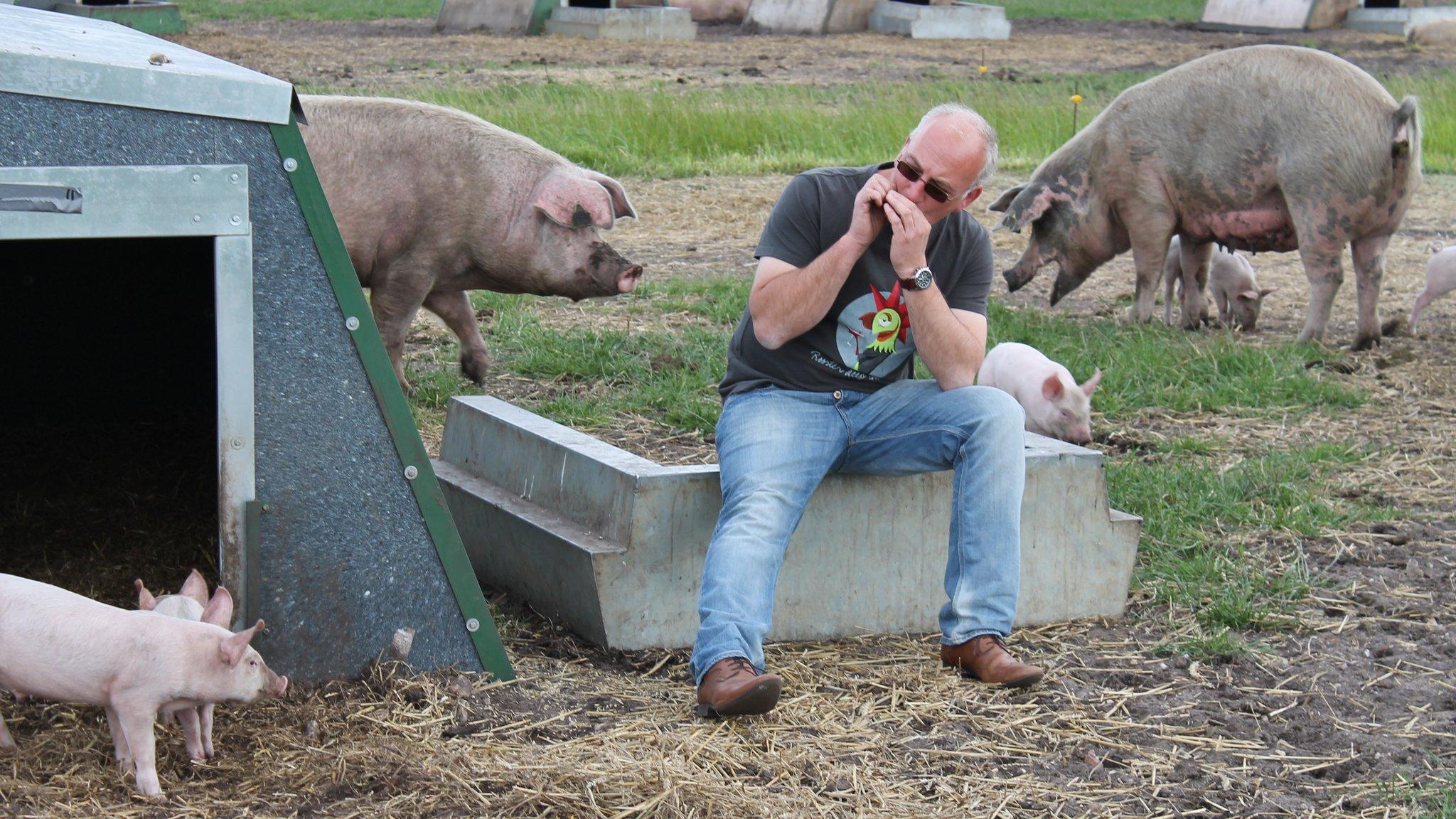Suffolk pig farm hopes flowers will feed bumblebees
- Published
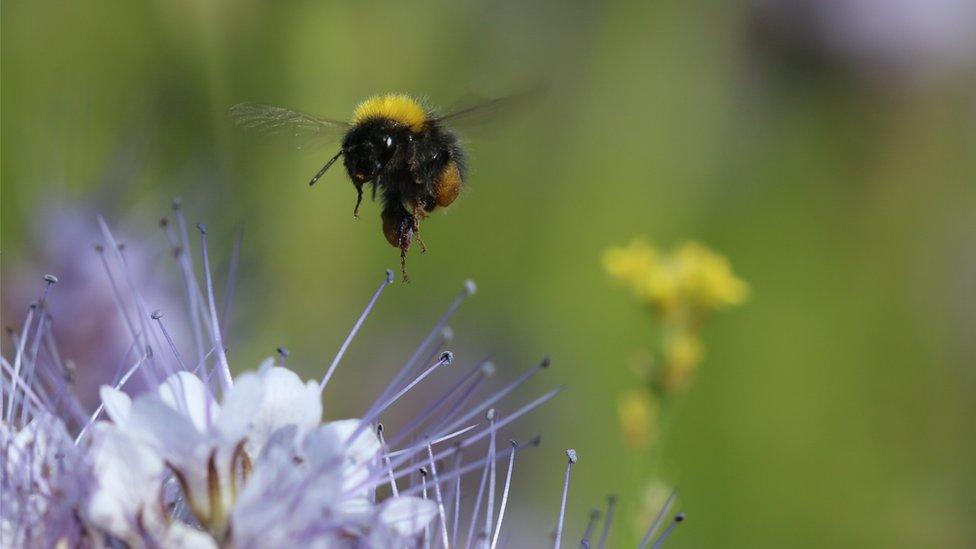
The 200 hectare (494 acre) farm at Campsea Ashe uses a seed mix of eight flowering plants
Two pig farming brothers have planted an extra 20 hectares (49 acres) of nectar-rich flowers in a bid to feed a million bumblebees this year.
Paul and Mark Hayward raise 500 pigs for the restaurant trade on Dingley Dell farm near Woodbridge.
Habitat loss is one reason why UK bumblebee numbers have declined.
The Haywards hope they will achieve their goal after trebling their pollinator-attracting planting to 33 hectares (81 acres).
Paul Hayward said: "If you have diversity, the insects, bees, mammals and birds will follow."
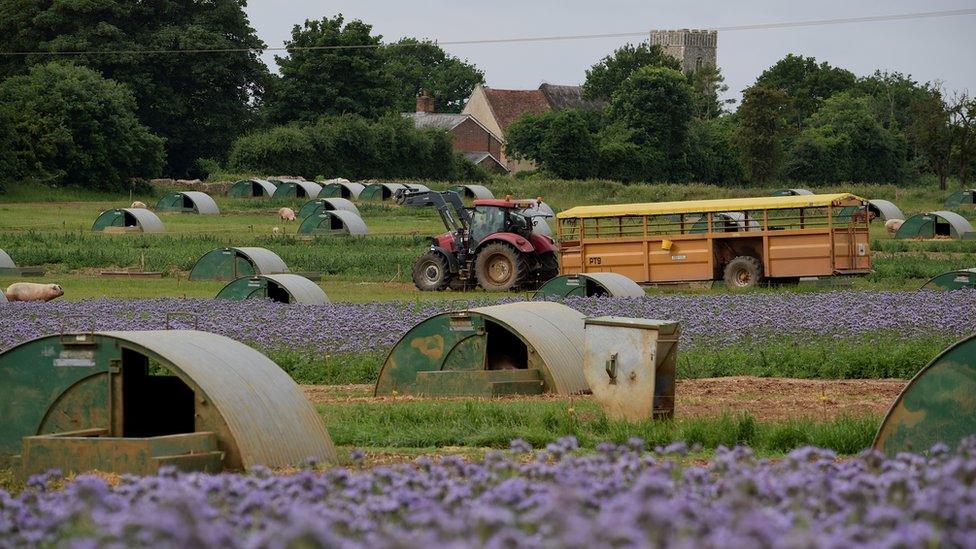
A rotational system had been developed in which half of each field is planted with nectar-rich plants, while the pigs occupy the other half
The farm uses a seed mix of phacelia, sainfoin, birds-foot trefoil, alsike clover, musk mallow, campium and vetch.
The brothers decided to increase their planting as a result of the interest shown by chefs during farm tours.
Mark Hayward said: "Two or three years ago, we realised they didn't just want to talk to us about the welfare of our pigs, but were excited about our pollen mixes and wild bird covers."
Essex butcher Direct Meats, which sells their meat, offered financial support for the plan.
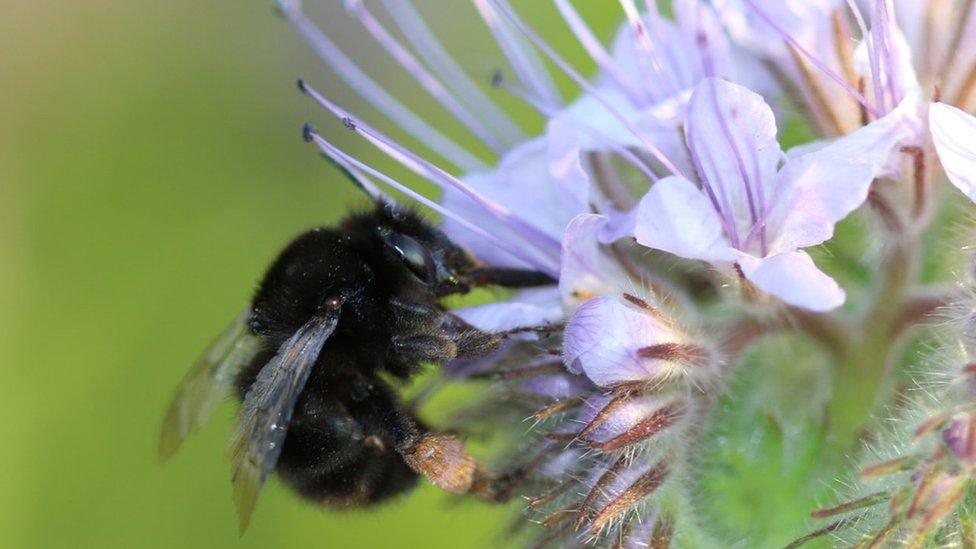
Mark Hayward said the rotational system also benefits the environment by reducing the amount of water run-off
The farm developed a rotational system for its pork production which allows it to grow both grass and wildflower mixes.
Two species of bumblebee became extinct in the UK in the 20th Century, and a further eight are on conservation priority species lists, according to the Bumblebee Conservation Trust.
It said modern farming practices, including the loss of 97% of flower-rich meadows since 1937, have aided the decline.
Chief executive Gill Perkins said: "The work that Dingley Dell is doing to provide vital flowering habitat for bumblebees and other pollinators is really encouraging."
An unofficial bee count in 2017 suggested the farm was providing food for 500,000 bees.
This year, the brothers have asked the Farming and Wildlife Advisory Group to conduct an official count.
- Published28 February 2018
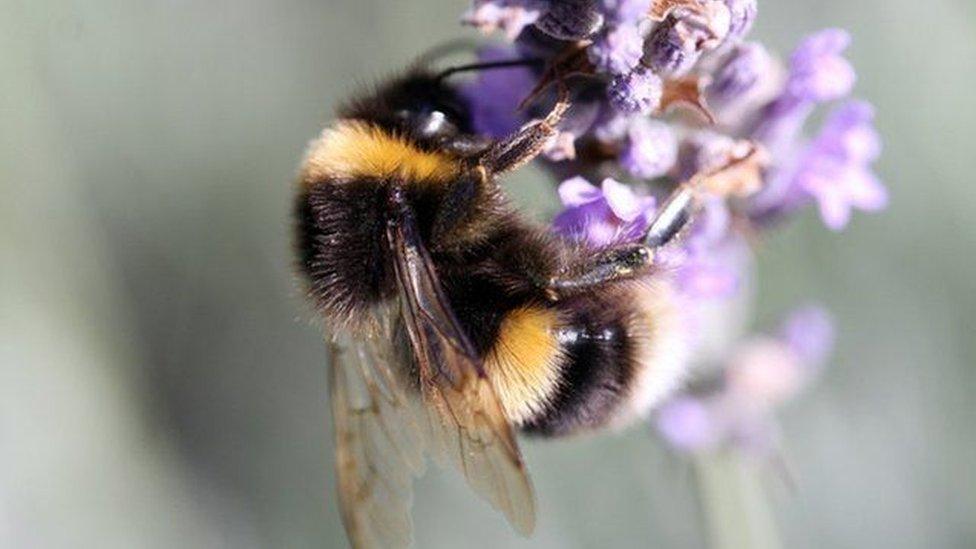
- Published28 February 2018
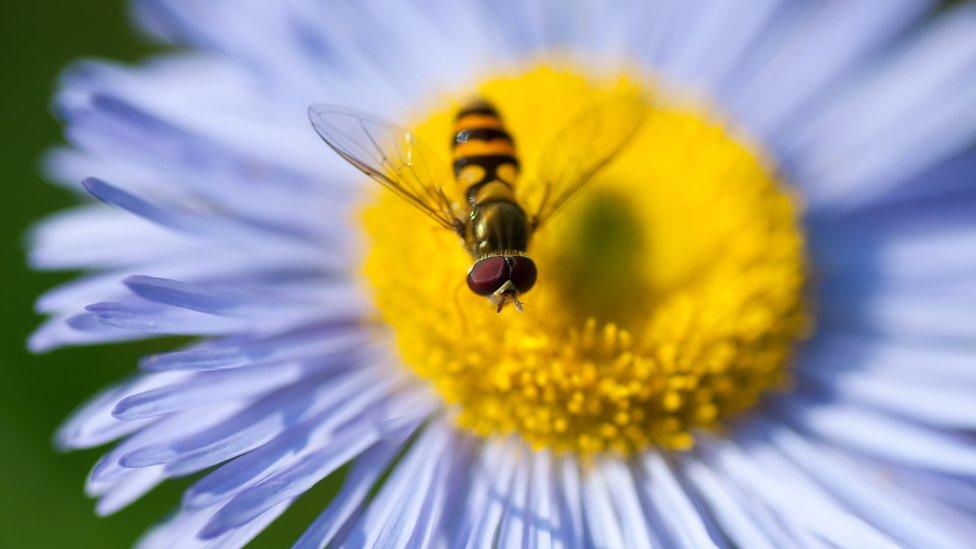
- Published29 June 2017
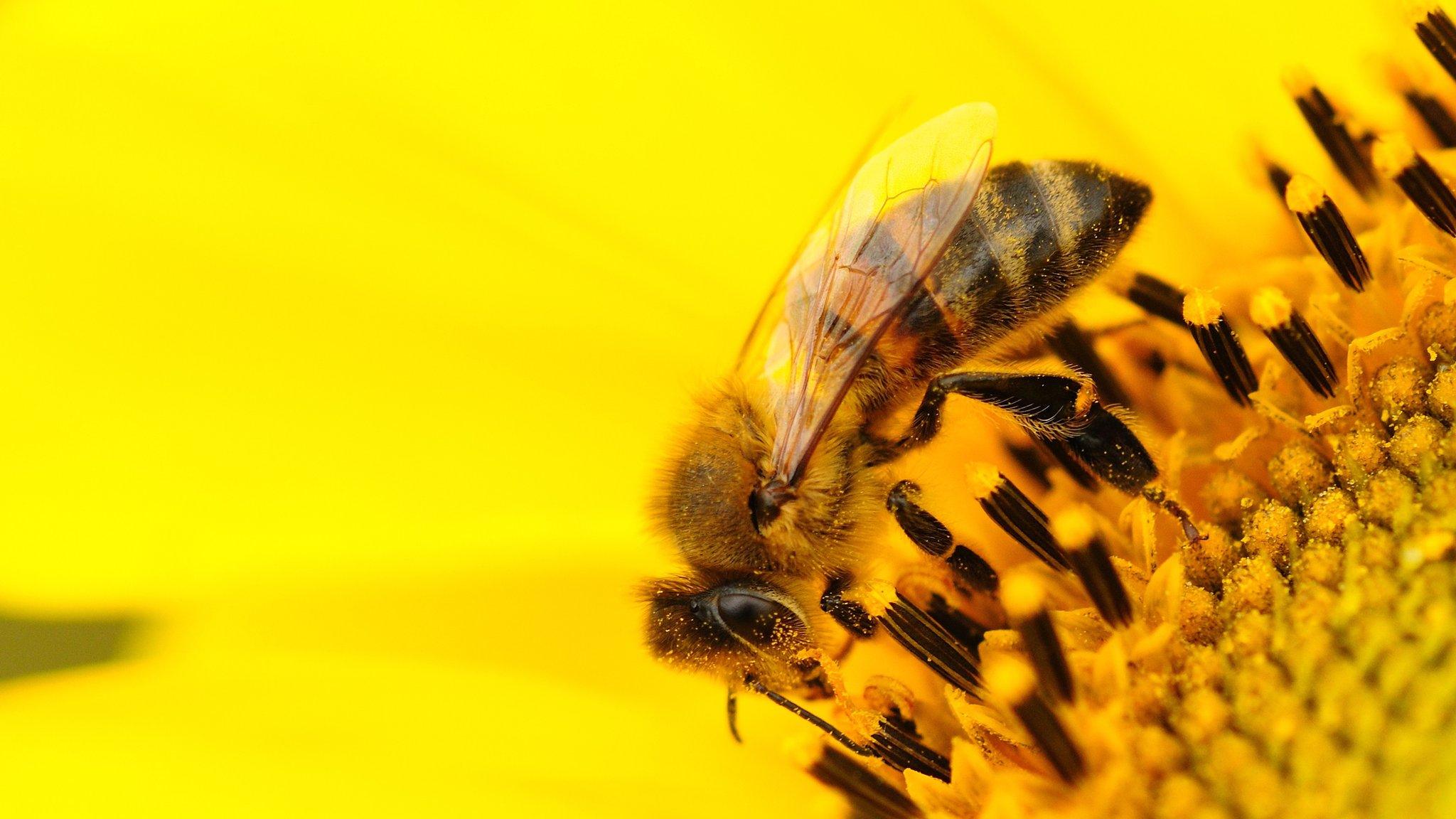
- Published28 December 2016
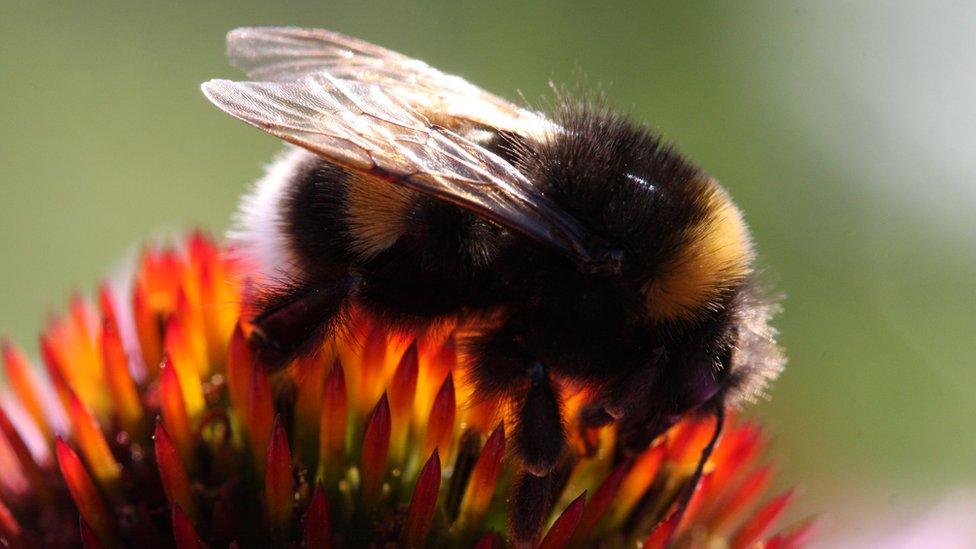
- Published18 June 2012
